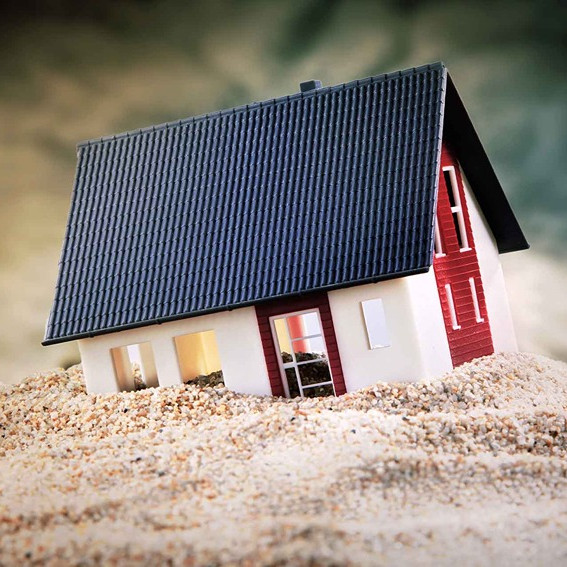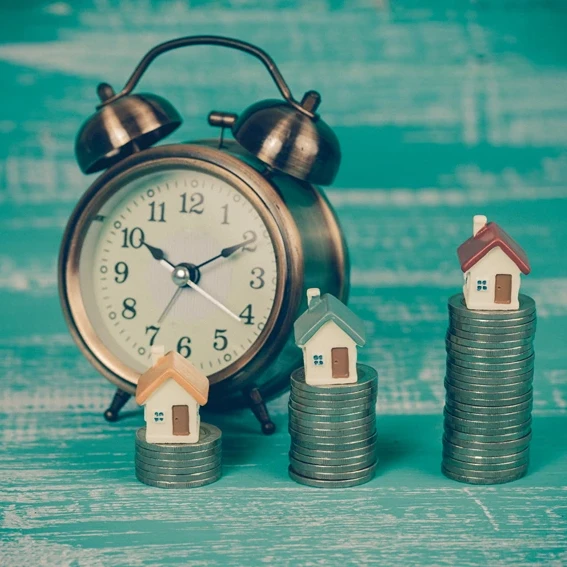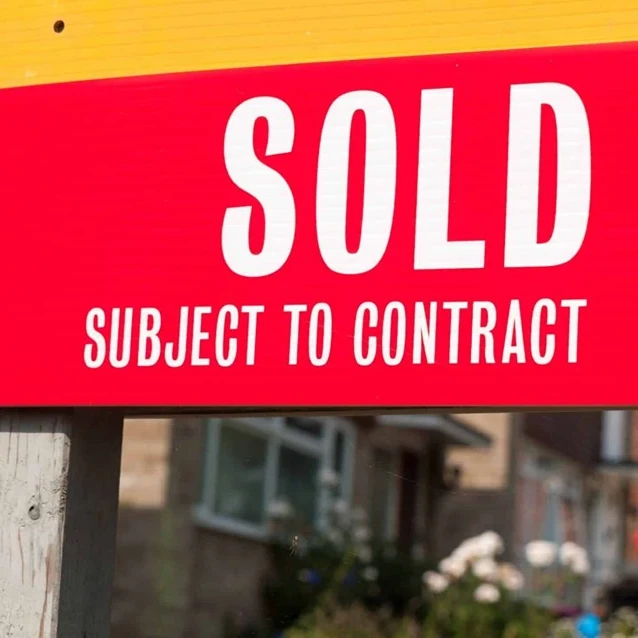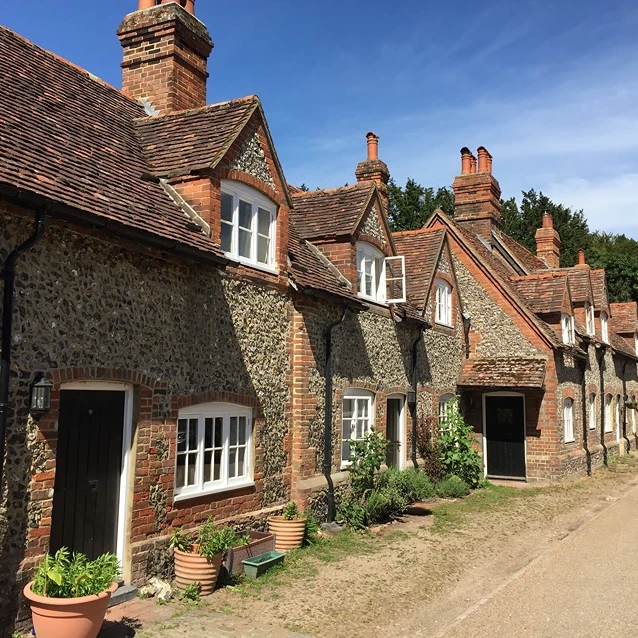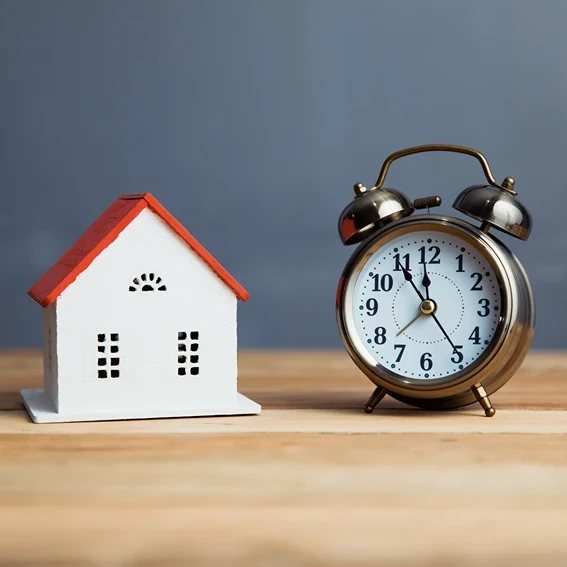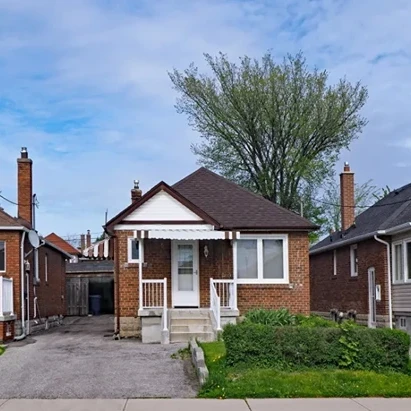Dive into the realm of freehold property ownership and discover a world where the keys to the kingdom are entirely in your hands. Exploring freehold means unlocking the full spectrum of ownership advantages – but is this type of property right for you? Let’s dissect the freehold property meaning, unravel the benefits of this perpetual tenure, and lay out why, for many, freehold is the gold standard in property ownership.
What Exactly is Freehold Property Ownership?
Owning a freehold property means you own the building and the land it’s built on outright, indefinitely. It’s the opposite of leasehold, where you only own the property for a certain number of years, but not the land it stands on. Now, what is a freeholder? A freeholder is someone who has complete ownership, granting them a higher degree of control over their property compared to leasehold ownership.
The advantages of freehold ownership are quite compelling. Firstly, there’s the security of knowing that the property is yours and you won’t have to deal with the landlord or lease agreements. There’s also the freedom to manage your property as you wish without the need to get consent for certain changes or face routine inspections.
But why might someone prefer freehold ownership over leasehold? The main lure of freehold is the long-term financial benefits. Without lease renewals or ground rent, you’re likely to save money over time. Moreover, freehold properties tend to appreciate more steadily, making them a smart investment for the future.
From houses with sprawling gardens to urban lofts with their attendant land, the variety of freehold properties is impressive. To get a detailed breakdown of the differences between freehold and leasehold properties, and to elaborate further on the concept of freehold, MoneyHelper is an excellent resource.
Given its numerous perks, freehold ownership stands out as an attractive proposition. It epitomises full ownership without the complexities of leasehold negotiations or the anxiety of lease expiration. With this tenure, you’re effectively the ‘king of your castle’, making the freehold path understandably the desired route for many prospective property owners in Scotland.
How Does Freehold Compare to Leasehold and Commonhold?
When weighing up your options in the property market, it’s crucial to grasp the distinctions between freehold, leasehold, and commonhold properties. So, what are the key differences?
A freehold property entails ownership of both the building and the land it stands on in perpetuity, meaning the owner has complete control and responsibility for the property. In contrast, owning a leasehold property means you only own the dwelling for a fixed term, not the land it’s built on, typically resulting in ground rent and service charge obligations. And then there’s commonhold – a less common form of property tenure in the UK, which allows individual owners of flats in a building to collectively own and manage the common parts of the property.
When comparing commonhold vs freehold, it’s worth noting that commonhold aims to address some drawbacks of leasehold, such as the devaluation of property as the lease shortens and the potential complexities of dealing with landlords. However, commonhold properties involve shared decision-making and management responsibilities among the owners.
Now, you might be curious – what are the benefits of owning a property freehold compared to leasehold? Well, the perks are plentiful. As a freeholder, you’re in the driver’s seat with absolute authority over your property. You won’t have to stress over lease renewals, ground rent, or the whims of a landlord.
That being said, the responsibilities are entirely yours too – from maintenance to repairs, every buckle and bolt is on you. This can be both liberating and daunting, but for those who prefer autonomy over their home and investment, the trade-off is often worthwhile. Moreover, owning the freehold typically adds a layer of security to your investment, as freehold properties tend to hold their value better over time.
If we delve into history, comprehension of the ownership landscape becomes even more fascinating. Post-World War II, as self-contained residential housing units became the trend, leasehold ownership spiked, primarily due to the ease of managing multi-occupancy buildings. Yet, freehold remained the gold standard for those desiring undisputed ownership.
In Scotland, the concept of commonhold is relatively new and still gaining traction. With its shared responsibilities and communal management, it has been viewed as a modern alternative to leasehold, offering perks like easier dispute resolution and less devaluation over time without the hassle of a landlord.
Thinking of selling your freehold property? It’s wise to consult a chartered surveyor or use a freehold calculator to gauge its market value — an essential step to ensure you get the best deal.
In summary, whether you’re leaning towards the independence of freehold, the shared responsibility of commonhold, or considering the complexities of leasehold, the choice depends on your long-term goals and financial plans. For a deeper understanding of leasehold properties and further guidance, the UK Government provides valuable information.
Are There Financial Benefits to Investing in Freehold Properties?
When looking into freehold property investment, it is essential to explore the financial perks that come with this type of asset. Freehold properties can often offer a secure form of investment with long-term financial benefits due to their nature of perpetual ownership. Similarly, buying an off-plan property can also be a strategic investment. Off-plan properties allow buyers to purchase at current market prices, potentially benefiting from property value increases by the time the property is completed. This approach, much like freehold ownership, can offer significant financial advantages if managed wisely. Unlike leasehold, freehold ownership means one owns both the building and the land it stands on indefinitely, eliminating ground rent and some of the other service charges that leaseholders have to pay.
Yes, there are financial advantages to investing in freehold properties, such as greater control over the property, potential savings on ground rent and service charges, and typically higher property values due to the complete ownership.
In terms of freehold property valuation, these properties are generally valued more favourably in the market. This is because buyers appreciate the lack of leasehold complications such as the devaluation of the property as the lease length decreases. A freehold property’s worth can increase over time, providing a significant return on investment when the owner decides to sell.
Furthermore, freehold properties can be less complex to sell, as potential buyers often prefer the clarity and full ownership that freehold provides.
Owners can also make changes to their properties without seeking approval from a landlord, which can add significant value if the alterations are desirable for future buyers. Moreover, if you decide to rent out your property, being a freeholder means you have no restrictions from a landlord on the lease agreement you offer to your tenants.
Financial implications of freehold ownership also include the responsibility for all maintenance and repair costs. However, the liberty to manage these without external lease constraints often leads to better maintenance decisions and can protect or improve the property’s capital value.
In summary, freehold property investment offers financial stability, control, and often a premium in market valuation compared to leasehold properties. While freeholders are responsible for all aspects of their property’s upkeep, this can be a small price to pay for the substantial financial and practical advantages that ownership confers.
What Are the Potential Costs and Responsibilities for Freehold Owners?
When stepping into the role of a freehold owner, you’re not just buying property; you’re embracing a full set of responsibilities and potential costs that accompany the sweet liberty of ownership. But what exactly does being a freeholder mean when it comes to the nitty-gritty day-to-day?
Responsibilities of Freeholders
As a freeholder, you are the king or queen of your castle, so to speak. You own the building and the land it stands on outright, with no lease expiry to worry about. However, with great power comes great responsibility. You are solely responsible for the maintenance and upkeep of your property. In contrast, shared ownership offers a different approach, where responsibilities and costs are divided among multiple owners. This can alleviate some of the financial and maintenance burdens, making it an attractive option for those who prefer not to handle all aspects of property management alone. This means everything from the roof to the foundations, including the land it occupies, falls under your purview. There’s no landlord to call when the heating goes out; you are the landlord.
Repairing the roof? That’s on you. Ensuring the garden doesn’t become an urban jungle? Also you. It’s essential to have a hands-on approach to managing freehold property, as the state of your property directly impacts its value and safety.
Freehold Property Maintenance Costs
Now, to the costs. Embracing the freehold life means waving goodbye to ground rent – a small victory cheer is appropriate here! However, you’ll need to budget for all the maintenance costs yourself. From fixing broken windows to servicing the boiler every year, the expenses can vary widely based on the age, type, and condition of your property.
But it’s not just repairs and renovations. Don’t forget about buildings insurance and possibly life insurance if your estate plan demands it. Planning for the long-term is critical; setting aside funds for eventual major repairs, like a new roof every few decades, ensures you won’t be caught off guard by significant expenses.
In a nutshell, owning a freehold property is immensely rewarding, especially when you yearn for absolute control over your dwelling. Still, it’s imperative to approach it with a clear understanding of the accompanying costs and commitments. With foresight and a bit of savvy budgeting, the freehold can be a great asset, offering a stable foundation for your future.
What Should You Consider Before Purchasing a Freehold Property?
If the allure of owning a home includes complete control over the property and the ground it stands on, buying freehold property could be a perfect match for your aspirations. But what are the main considerations and risks involved in purchasing such a property? And what critical questions should you ask before you seal the deal on your freehold acquisition?
When you are eyeing a freehold property, the upside is clear: you own the property outright, including the land it’s built on, a gem of residential freedom. This means no pesky ground rent or service charges that usually come with leasehold properties. However, this autonomy also means you shoulder all responsibilities for repairs and maintenance – from fixing the roof to maintaining shared access areas.
The risks of buying freehold are not to be overlooked. It’s unwise to overlook the due diligence regarding potential structural issues or planning restrictions that could affect your ownership. A thorough inspection and a solid understanding of any future financial obligations for maintenance should be on your checklist.
Embarking on the freehold journey demands a set of vital questions to be asked. Among these, you should inquire about:
- Any existing planning permissions or restrictions.
- The history of building work done and what might be required in the future.
- If there are any issues with the land the property sits on, like flooding risk or subsidence.
- Shared responsibilities, like in the cases of access roads or communal gardens – who is in charge and what costs are involved?
It’s wise to sift through the Leasehold Advisory Service for comprehensive guidance on these matters.
Understanding the difference between leasehold and freehold properties is fundamental before proceeding with any property transaction. For those considering alternative ownership structures, buy a house with friends can be an innovative solution. This approach allows multiple parties to share the financial and maintenance responsibilities, making property ownership more accessible and manageable for all involved. You become the freeholder, yes, but also the guardian of your estate, bearing the full weight of its care and value. And with this knowledge well-cemented, you can avoid the pitfalls and harness the full potential of owning your home outright, making informed decisions that cater to your long-term satisfaction and financial health.
How Can You Effectively Manage a Sale or Transfer of Freehold Ownership?
When considering the sale of a freehold property, what are the key selling points you should highlight? Freehold property selling points include the transfer of complete ownership, no leasehold covenants, and the lack of ground rent or service charges, providing potential buyers with autonomy and long-term financial savings.
How can the transfer of freehold ownership be most efficiently managed? Transferring freehold ownership can be efficiently handled by securing legal representation well-versed in freehold transactions, ensuring all necessary paperwork is accurate and complete, and engaging with the buyer to negotiate terms clearly and effectively.
Now, let’s delve deeper into these points to ensure you’re empowered with the knowledge for a successful deal.
Highlighting the autonomy and long-term financial benefits is crucial when marketing your freehold property. Start by focusing on the freedom a freeholder has to manage their property. Unlike leasehold, freehold ownership liberates the owner from the oversight of a landlord or management company, which is a compelling selling point to stress. Emphasise the elimination of ground rent and service charges, which can accumulate significantly over time for leaseholders.
When it comes to the nuances of negotiation, transparency is key. The negotiation of a freehold sale requires clear communication of terms and expectations, balance and fairness in dealing with offers, and a thorough understanding of market conditions. Crafting an attractive yet practical deal for both parties should remain your prime objective. Above all, presenting your freehold property with accuracy and highlighting its unencumbered value will set a solid foundation for negotiations.
Now, regarding the transfer process itself, employing a solicitor with experience in freehold conveyancing is a must. Their expertise will guide you through the complexities of property law, ensuring a smoother transition of ownership. This encompasses dealing with the legal documentation, such as the transfer deed, and ensuring everything complies with property law.
Efficiency comes from preparation and knowledge. Be sure to consult resources such as “Freehold 101: Everything You Need to Know About Freehold Properties”, which offers a comprehensive look at freehold real estate and can further fine-tune your approach to managing the intricacies of freehold sale and transfer.
Remember, the process of selling or transferring freehold property doesn’t have to be daunting. By focusing on its unique selling points, handling negotiations with skill, and managing the legalities with expert help, you can make the transition as smooth and favourable as possible for everyone involved.
Freehold Property Types: Worth It?
Opening the door to a home you can call truly yours is a journey paved with vital decisions. One of the most crucial concerns the type of property ownership you choose. Enter freehold – a term that might sound a bit scholarly but carries a wealth of benefits for a discerning homeowner or an astute investor.
What Exactly is Freehold Property Ownership?
The freehold property meaning is quite straightforward: it translates to complete control.
When you become a freeholder, you own both the building and the land it stands on, and there’s no end date to that ownership. Compare that to leasehold, where you own the property for the length of the lease agreement with the landowner, and the difference becomes clear. With freehold, you keep perpetual freehold interests – meaning your claim on the property and land is eternal, and the list of what is a freeholder’s responsibilities is exhaustive yet empowering.
Why might someone prefer freehold ownership over leasehold?
Imagine this: no ground rent, no service charges, and no lease expiry dates looming over your head. That’s the freehold advantage. The peace of mind knowing that you are the actual ‘lord of the manor’, without a landlord or managing agent to answer to, is priceless. Freehold ownership advantages extend beyond just stability; they connect with a deep-rooted desire many of us have for full autonomy over our living spaces.
For a more in-depth scoop on the benefits and nuances of freehold versus leasehold properties, MoneyHelper offers a fantastic resource that lays it all out in easy-to-understand terms.
Let’s contextualise this with a simple comparison. If you had the choice between a lifetime pass or a yearly subscription to a service, wouldn’t you choose the lifetime pass for absolute convenience and cost-effectiveness? Buying freehold property is akin to that lifetime pass. You invest once and reap the rewards ad infinitum.
And when we look at freehold estate characteristics, we see strength and simplicity. Residential freehold properties signal security, a slice of the British dream. Meanwhile, commercial freehold premises suggest a solid groundwork for businesses to build upon.
In understanding freehold ownership, it’s important to acknowledge its historical root, exercising sovereignty over one’s domain. It’s a narrative rich with tradition, progress, and modern adaptability. Freehold isn’t just an ownership type; it’s a legacy that you can pass down, unencumbered and without the tangles of leased obligations. The selling points for freehold property are as persuasive as they ever have been.
The Scottish property market, often characterised by its distinct legal system and property nuances, also falls under these freehold perks. For those navigating this territory, the Scottish perspective brings with it unique considerations. Here, freehold ranges from the storied stones of Edinburgh townhouses to the serene simplicity of rural Highland retreats.
Whether you’re managing freehold property, pondering the freehold purchase cost, or evaluating freehold property valuation, it is clear that being a freeholder in Scotland comes with a host of benefits marked by freedom and permanence.
Taking the step towards buying a freehold means securing a lasting stake in bricks and mortar. It is about making an investment not merely for years, but for generations. For more information on how to navigate these waters in Scotland and manage your freehold effectively, the Scottish Government provides a helpful guide on homeownership policies.
As you turn the key in the lock of a freehold property, you’re not just unlocking the door to a building; you’re opening a chapter of history, setting a precedent of ownership, and, indeed, claiming a little piece of the land to call your own, indefinitely. Freehold property ownership doesn’t just sound good; ownership and control make it worth it.
Conclusion
Understanding freehold property ownership is vital for anyone navigating the UK property market. Owning freehold means holding permanent and absolute tenure over land and buildings, giving owners greater control compared to leasehold alternatives. It’s not just about legal rights; the financial benefits, like freedom from ground rent and potential for appreciation, are significant. Yet, with ownership come responsibilities such as maintenance and management of the property. As potential freehold purchasers or sellers, weighing up these pros and cons is essential. Whether you’re considering investing in freehold properties or looking to transfer ownership, staying informed is key to a sound decision. Engage with the thorough information, draw on expert advice, and trust that with the right approach and knowledge, navigating the freehold property landscape can be a fulfilling and profitable journey.
FAQ
Q: What is freehold property ownership?
A: Freehold property ownership means owning the building and the land it’s built on indefinitely, with no lease expiry to worry about.
Q: How does freehold differ from leasehold ownership?
A: Freehold ownership involves owning the property and the land outright, offering greater control and avoiding ground rent and lease renewals, unlike leasehold where you own the property for a fixed term and are subject to a landlord’s rules.
Q: Are there financial benefits to investing in freehold properties?
A: Yes, freehold properties offer financial advantages like saving on ground rent, potential for property value appreciation, and fewer leasehold complications, making it a stable and potentially lucrative investment.
Q: What responsibilities do freehold property owners have?
A: Freehold property owners are responsible for all aspects of maintenance and repair, as well as managing any costs associated with the upkeep of their property and land.
Q: What considerations should one keep in mind before buying a freehold property?
A: Before purchasing a freehold property, consider potential maintenance costs, structural issues, planning permissions, and any shared responsibilities for access areas or communal spaces.
Robbie Jamieson
Robbie’s passion for real estate extends beyond the conventional, bringing fresh and dynamic ideas to the table. His expertise in leveraging online platforms ensures that your home receives the attention it deserves in today’s competitive market.
Related Posts
Can You Fix an Unmortgageable House
August 29, 2024
Struggling with unmortgageable property? Find out what makes a property hard to finance and how to navigate the sale process effectively.
How Much Does Subsidence Devalue Property
August 21, 2024
Concerned how much subsidence could devalue your property? Get expert insights on the financial impact and solutions in our guide.
How Long to Sell a House? Quick Sale Insights
August 20, 2024
Curious about how long it takes to sell a house? Read on for expert insights and guidance on the Scottish market.
How Many Viewings to Sell a House
August 16, 2024
Ever wondered how many viewings to sell a house quickly? Get statistics, tips, and strategies for a swift UK property sale.
What Does Sold STC Really Mean for Your Sale
August 15, 2024
Curious about ‘Sold STC’ meaning? Our blog demystifies the term for buyers & sellers navigating UK property sales.
Selling a House Over a Mine Shaft? What You Need to Know
August 9, 2024
Selling your house with a mine shaft? Get expert tips on value assessment, legalities & buyer reassurance. Navigate mine shaft property sales with confidence.
Can You Sell a Leasehold Property Easily
August 2, 2024
Wondering if you can sell a leasehold property in Scotland? Get expert tips on the process & legalities to sell with ease and confidence.
Can You Sell a House with a Mortgage Easily
July 23, 2024
Curious if you can sell a house with a mortgage? Get the facts on legalities and logistics in our latest post.
How Long Does It Really Take to Sell a House
July 15, 2024
Wondering what is the average time to sell a house in Scotland? Get the facts and strategies for a quick sale with our guide.
Do Bungalows Sell Quickly? The Data Will Shock You
July 12, 2024
Wonder if bungalows sell quickly? Our latest post delves into the Scottish market, with tips to expedite your sale.








